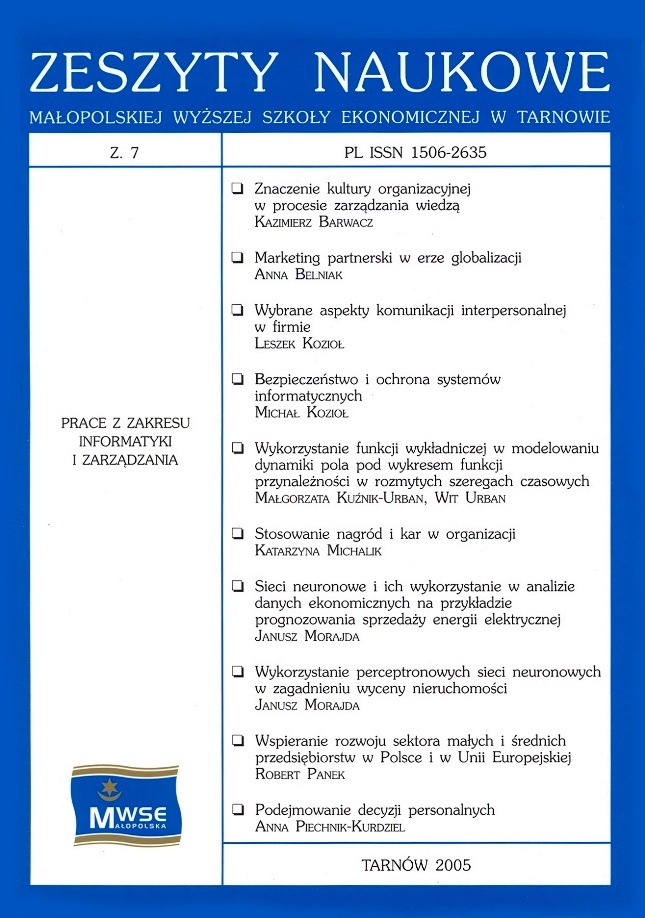Abstract
Analysis of praxic movements (PMA) is a novel approach to graphical user interface development, based on natural human behaviour. In a PMA-based interface, each screen element is related to a single function performed by the computer system. When the user points to a screen element, the related function is activated. A PMA-based interface is supported by an AI component responsible for detection and interpretation of the pointing action. The dynamics of pointer movements over the screen is a sole source of the information processed by PMA, while all other input signals are neglected. Those properties of a PMA-based interface make it a convenient tool for creation of simple and intuitively operated human-computer interfaces for the disabled.
References
Przybyło J., Jabłoński M., Wołoszyn P., Wizyjny interfejs człowiek–komputer przeznaczony dla użytkowników niepełnosprawnych, Automatyka, Uczelniane Wydawnictwa Naukowo-Dydaktyczne AGH, 2003, t. 7, z. 3, s. 385-398.
View in Google Scholar
Przybyło J., Wołoszyn P, Jabłoński M., Rozpoznawanie jednostek czynnościowych mimiki twarzy dla potrzeb interfejsu człowiek-komputer, Materiały seminarium Przetwarzanie i analiza sygnałów w systemach wizji i sterowania, Słok, 2004.
View in Google Scholar
Wołoszyn P., Przybyło J., Jabłoński M., Analiza przydatności metod komunikacji z komputerem w tworzeniu interfejsu dla osób niepełnosprawnych, Automatyka, Uczelniane Wydawnictwa Naukowo-Dydaktyczne AGH, 2003, t. 7, z. 3, s. 399-408.
View in Google Scholar
Wołoszyn P., Tadeusiewicz R., Analiza ruchów praksyjnych jako nowe narzędzie przydatne w tworzeniu graficznego interfejsu użytkownika, Informatyka Teoretyczna i Stosowana, Wydawnictwa Politechniki Częstochowskiej, 2003, vol. 3, nr 5, s. 115-138.
View in Google Scholar
© Copyright by Małopolska School of Economics in Tarnów. The articles are available under the Creative Commons Attribution NonCommercial-NoDerivatives 4.0 International License


